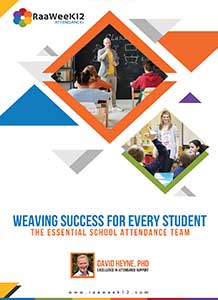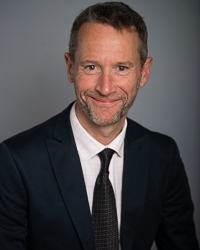
Absenteeism is more than just missed days, it’s missed opportunities, missed connections, and for many students, missed chances to thrive.
In today’s educational landscape, ensuring students show up and stay engaged takes more than policies and reminders, it takes a team. A strong, intentional, collaborative team.
That’s where the Essential School Attendance Team comes in. This isn't about bureaucracy, it’s about belonging, it’s about a group of passionate educators and professionals coming together to make sure every student feels seen, supported, and empowered to attend, not out of obligation, but because they want to.
A Shift in Mindset – From Policy to People:
TEAMWORK
For decades, absenteeism was tackled with warnings, punishments, and rigid attendance codes. But research and lived experience have flipped the script. Now, we know the key isn’t in scolding, it’s in support. The attendance team’s approach is rooted in empathy and strategy. It’s about asking the right questions: Why is this student not showing up? What’s going on beneath the surface? How can we help, not penalize?
It’s a shift from compliance to connection.
The Core Four and So Much More:
TEAM MEMBERS
At the heart of every effective attendance team are what the whitepaper calls “The Core Four”:
- A data analyst
- A behavioral and social-emotional expert
- A learning specialist
- A school administrator
Together, these individuals form a powerful brain trust, combining numbers, insight, experience, and authority to craft solutions tailored to student needs. But the beauty of the model is in its flexibility and inclusivity. Teachers, counselors, community partners, even parents and students can all bring something vital to the table. This isn’t a closed circle. It’s a growing, evolving web of collaboration.
A Framework That Works:
The 3D PYRAMID
The whitepaper introduces a game-changing tool: the 3D Pyramid Framework, a multidimensional model to guide interventions.
Level 1 is all about prevention. Proactive policies, strong relationships, positive school culture.
Level 2 identifies students at risk early and offers timely, tailored support.
Level 3 digs deeper; providing intensive, wraparound interventions for students with chronic absenteeism.
The pyramid’s structure also recognizes why students miss school: emotional distress, disengagement, logistical challenges, or systemic inequities. Each “face” of the pyramid reflects a different challenge, and the team tailors support accordingly. It’s not just a visual aid, it’s a mindset shift.
Beyond School Walls:
Community, Communication, and Tech
One of the most inspiring takeaways? Attendance work doesn’t stop at the school gate.
Strong teams build bridges with families, healthcare providers, social services, and community organizations. With smart use of technology dashboards, communication tools, and intervention management systems. They track progress, identify patterns, and coordinate support in real time.
In the right hands, data becomes a lens to see students clearly, not just numbers, but stories waiting to be heard.
Building a Future Where Every Student Belongs
Ultimately, this work is about more than attendance. It’s about making sure every student knows: You matter. We want you here.
Dr. Heyne’s whitepaper reminds us that addressing absenteeism is not a side project, it’s central to student success. And it takes all of us: educators, families, communities. So, let’s stop thinking of attendance as a checklist. Let’s start seeing it as a culture, one of belonging, resilience, and opportunity.
Ready to start weaving your own attendance success story?
Check out the full whitepaper and explore how your school can build a team that transforms not just attendance but lives.

Dr. DAVID HEYNE, PHD
EXCELLENCE IN ATTENDANCE SUPPORT
info@davidheyne.org
Dr. David Heyne, PhD, is a clinical child psychologist with over 30 years of experience specializing in school attendance problems, particularly school refusal related to anxiety and depression. He earned his PhD from Monash University and has held academic positions at Leiden University and Deakin University.
His work focuses on developing interventions that engage families and schools in supporting youth. He co-founded the International Network for School Attendance (INSA) and has contributed widely to research, including assessment tools and meta-analyses on treatment outcomes.




